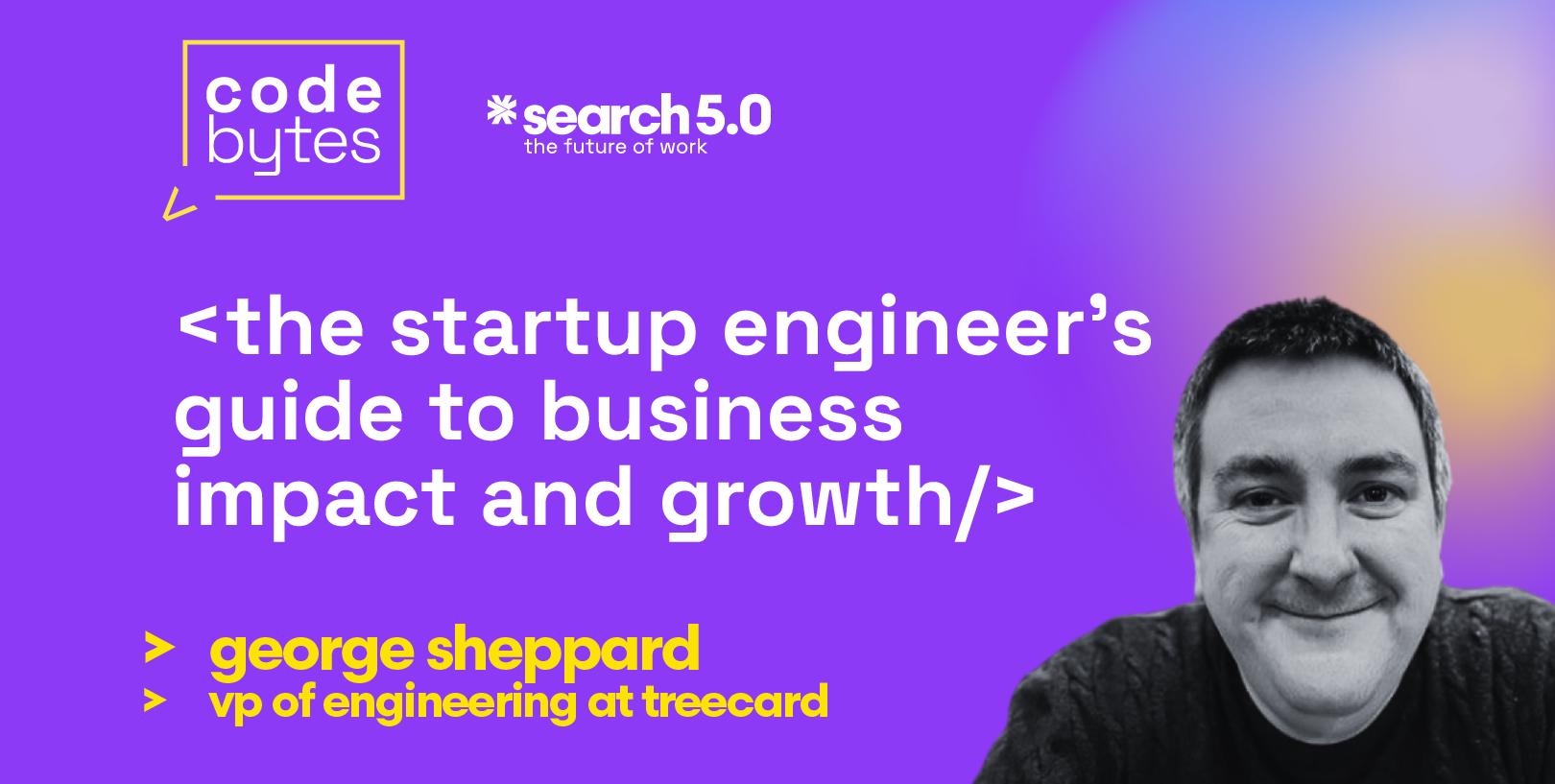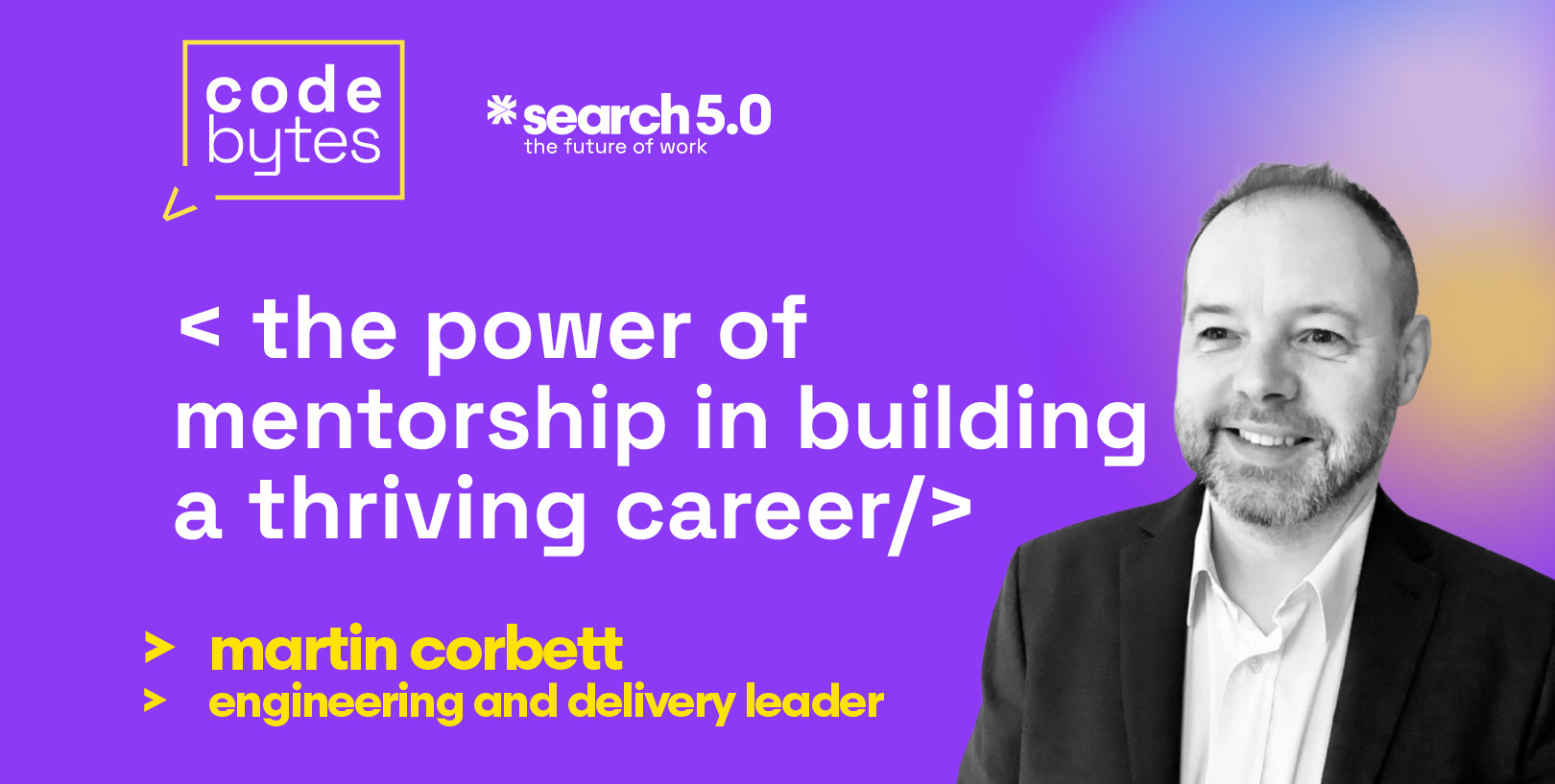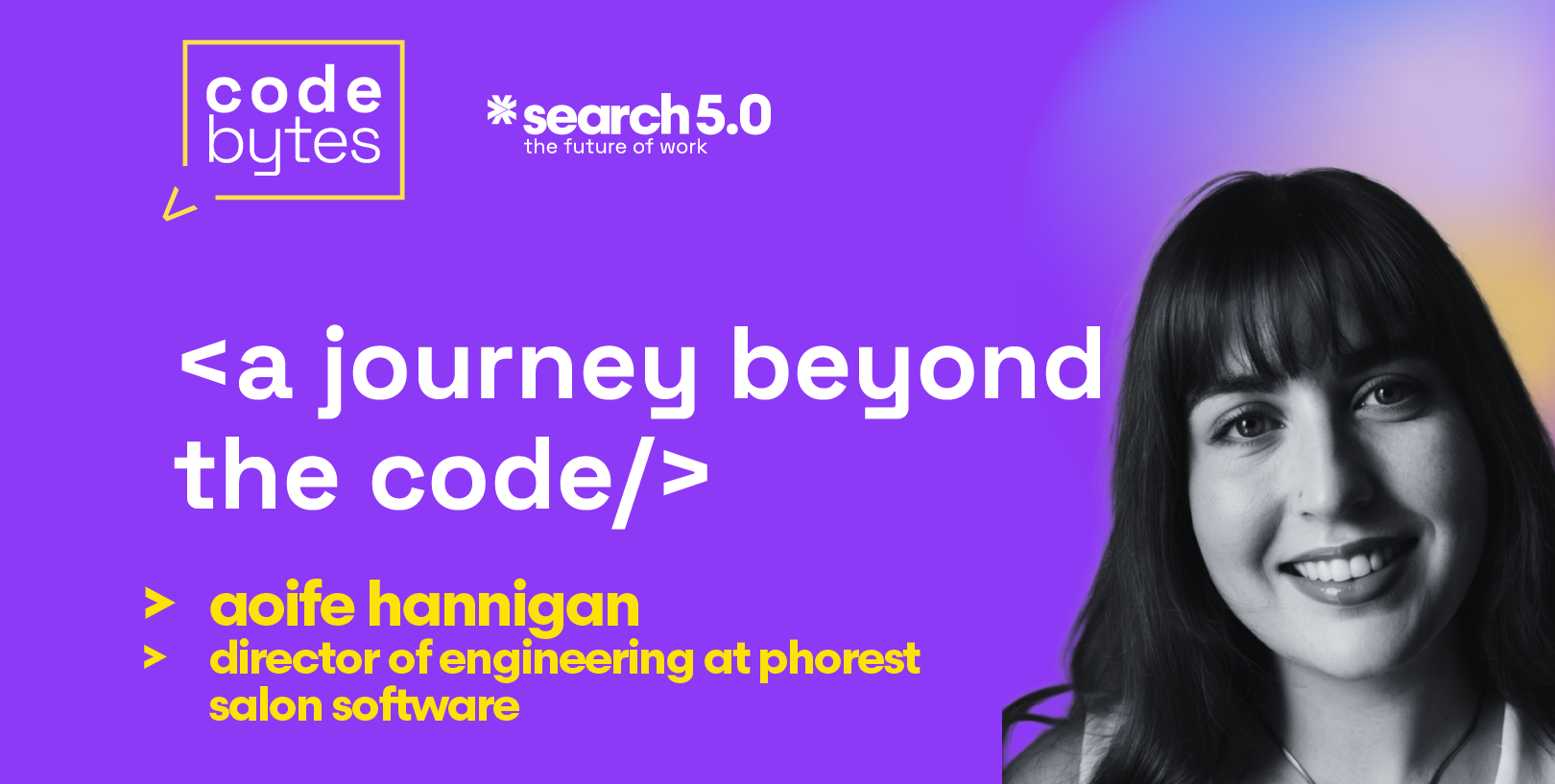
Navigating Startup Engineering and Technology Careers
The latest episode of Code Bytes, hosted by Stephen, features an in-depth discussion with George Sheppard, VP of Engineering at Treecard. George brings a wealth of experience from the startup world, sharing his journey in software engineering, infrastructure and support, and product development.
This episode is particularly valuable for those working in technology recruitment in the UK and Northern Ireland, as well as professionals exploring contract roles in technology, cloud engineering and DevOps, transformation and change, and data and AI. Whether you’re an aspiring engineer, a hiring manager, or someone interested in jobs in technology, this conversation offers essential takeaways on building high-performing teams, leveraging AI in development, and scaling startups.
From Startups to Scale: Lessons in Software Engineering
George Sheppard’s career spans over 15 years in software engineering, with a strong focus on startups and technology-driven business growth. His interest in technology and product development began in school when a teacher introduced him to basic programming concepts, sparking a lifelong curiosity.
From there, he pursued a computing degree, though his career path was not meticulously planned. After graduating during the 2008 financial crisis, job opportunities were scarce. The only company to interview and hire him was a sports betting platform in Barnborough, exposing him to high-stakes software engineering and infrastructure challenges.
One of the most formative experiences of his early career was realising the importance of business value in engineering work. He recalls a period when financial mismanagement meant employees weren’t paid, leading him to think critically about the commercial impact of technology decisions. This perspective became central to his approach in later roles, particularly in product development, infrastructure and support, and cloud engineering and DevOps.
Why Business Sense is Essential for Engineers in Product and Cloud Engineering
One of the key themes in this episode is why engineers need business awareness. George discusses a period in his career where he worked for a corporate-backed startup that had spent 18 months building a software product without a clear business model. This experience reinforced a crucial lesson:
Technical skills alone are not enough—engineers must understand the business impact of what they build.
This is particularly relevant in technology recruitment in the UK and Northern Ireland, where hiring managers increasingly look for engineers who can bridge the gap between software engineering, product strategy, and business outcomes.
The demand for product engineers—a hybrid role that combines software engineering, product development, and user experience—has grown significantly. Companies now seek professionals who can actively shape the roadmap of a product, rather than simply executing pre-defined tasks.
George emphasises that in fast-paced startup environments, engineers must understand product-market fit, scalability, and cost considerations. These are critical skills for those looking to secure contract roles in technology, particularly in fields such as cloud engineering and DevOps, data and AI, and transformation and change.
The Evolution of Infrastructure and Support in Startups
Startups operate in unique and dynamic environments, where infrastructure and support play a crucial role in success. George explains that early-stage companies often prioritise speed over stability, a trade-off that becomes increasingly complex as the company scales.
To illustrate this, he introduces the concept of Pioneers, Settlers, and Town Planners—or as some now call them, Makers, Manufacturers, and Mass Producers. These categories describe different types of engineers:
- Pioneers (Makers) thrive in high-innovation environments, where they build new products from scratch.
- Settlers (Manufacturers) optimise and refine existing software and infrastructure.
- Town Planners (Mass Producers) introduce structured processes to ensure stability and scalability.
George stresses that technology recruitment in the UK and Northern Ireland needs to align talent with the right company stage and engineering culture. In early-stage startups, adaptability and problem-solving are more valuable than rigid adherence to structured processes.
He also highlights that as startups grow, infrastructure and support must evolve to sustain growth. This shift requires companies to reassess their hiring strategies, ensuring they bring in engineers who fit the company’s maturity level.
The Role of Data and AI in Software Testing and Engineering
With the increasing adoption of data and AI, George discusses how these technologies are reshaping software testing, engineering, and infrastructure support.
Contrary to concerns that AI will replace engineers, George believes AI enhances productivity, allowing developers to:
- Automate repetitive tasks
- Generate code more efficiently
- Improve software testing and quality assurance
- Reduce manual infrastructure and support work
He encourages engineers to actively engage with AI-driven development tools, such as ChatGPT, Copilot, Cursor, and other AI-assisted coding platforms. Those who fail to adopt AI-enhanced workflows risk falling behind in an industry that is rapidly evolving.
For technology recruitment businesses like Search 5.0, the demand for data and AI specialists continues to grow. Companies now seek engineers who not only develop AI-driven solutions but also integrate them into core infrastructure and software testing processes.
Building High-Performing Tech Teams: The Future of Technology Recruitment
A major focus of this episode is how companies can attract and retain top engineering talent. George highlights key hiring strategies for technology recruitment in the UK and Northern Ireland, particularly in startups and high-growth companies.
He warns against the common mistake of over-prioritising technical skills while neglecting cultural and operational fit. Hiring the wrong type of engineer for the company stage can result in misalignment, inefficiencies, and slower product development.
To address this, George suggests a hiring framework based on a scale of zero to ten:
- Zero represents startups with no structure, where processes are chaotic, and development is fast and reactive.
- Ten represents highly regulated enterprises, such as banks or healthcare companies, where strict processes must be followed.
Startups operating at level 3 or 4 require self-sufficient, adaptable engineers who can handle ambiguity. In contrast, organisations at level 9 or 10 need engineers experienced in compliance, security, and structured development methodologies.
For job seekers exploring contract roles in technology, understanding where they thrive—whether in fast-paced innovation or structured enterprise environments—is crucial to securing the right opportunities.
The Future of Software Engineering and Technology Recruitment in Northern Ireland
George concludes the episode by discussing the evolving job market in technology recruitment. He emphasises the importance of:
- Networking and mentorship: Engineers should actively build professional relationships to discover job opportunities.
- AI integration: Professionals must adopt AI-powered development tools to stay relevant.
- Industry awareness: Staying updated with emerging trends in data and AI, cloud engineering, and transformation and change is key to long-term career success.
He encourages engineers to seek continuous learning opportunities and engage with industry events and communities. For those pursuing jobs in technology, staying proactive and adaptable will be the key to thriving in a fast-changing job market.
Final Thoughts: Mastering Technology Recruitment, Hiring, and Career Growth
George Sheppard’s insights on software engineering, infrastructure and support, product strategy, and AI integration make this episode of Code Bytes essential listening for anyone involved in technology recruitment in the UK and Northern Ireland.
This episode of Code Bytes featuring George Sheppard, VP of Engineering at Treecard, is highly relevant to Search 5.0 as a leading technology recruitment company. The discussion covers key areas that directly impact technology recruitment in the UK and Northern Ireland, particularly in software engineering, cloud engineering and DevOps, data and AI, and infrastructure and support.
George provides valuable insights into hiring and retaining top tech talent, emphasising the importance of aligning engineers with the right company stage and culture. This aligns with Search 5.0’s approach to recruitment—ensuring that companies secure candidates who are not just technically skilled but also fit their business needs and growth objectives.
With the increasing demand for contract roles in technology, George’s discussion about the evolving nature of software testing, transformation and change, and AI-driven development highlights the skills that businesses now require. As a technology recruitment agency, Search 5.0 specialises in identifying professionals who excel in these areas, helping businesses scale effectively.
The episode also reinforces the importance of adaptability and AI adoption in modern engineering roles—an area where Search 5.0 continuously advises candidates and clients to stay ahead in the competitive job market.




